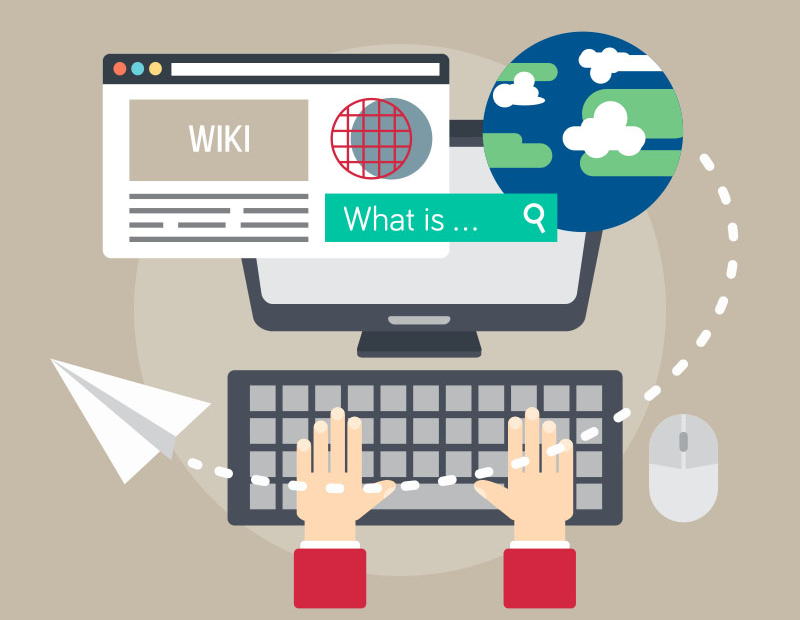In recent years, online teaching has progressed significantly. However, there’s a concern that it might not promote the same teamwork found in face-to-face classes. A great way for students to grasp various concepts is by sharing their thoughts. Interacting in forums helps students assess their understanding of the subjects. Fortunately, the rise of online interactive platforms has shown that collaborative groups can still form in online classes.
Wikis serve as tools that empower students to add and edit various pages containing course-related content. These platforms are employed by students as interactive online spaces, promoting a collaborative learning atmosphere.
Students can post all kinds of articles, videos, presentations, research and in this way other students can correct each other and exchange knowledge.
The teacher gives most of the course materials, and students work together to add and improve the content as a group.
Frequently applications of wikis involve:
- Small research projects using the wiki to document student work.
- Collaborative annotated bibliographies where students summarize and critique course readings collectively.
- Compilation of a handbook or glossary featuring important terms or concepts related to the course, and potentially a guide to a significant course concept.
- Developing e-portfolios to showcase student work.
Wikis thrive when the emphasis is on the collective outcome rather than individual authorship. They are best suited for content that doesn’t require protection against accidental edits.
How to get started:
A wide variety of free and easy-to-use wikis make it simple to get started
Free and professional wiki hosting and file sharing | Education Hub
It is important to mention that one of the key criticisms leveled against Wikis is the freedom they offer, which opens the door for unscrupulous individuals to disseminate misleading information on the topic being discussed. The continuous editing nature of these sites creates a situation where the information available today might significantly differ from what is found tomorrow.However, within the educational domain, Wikis stand out as a valuable tool. Instructors have the ability to manage access and editing, allowing them to designate a wiki as either public or private. Moreover, Wikis are easily accessible online and come with user-friendly features that need minimal training.

 Danish
Danish Deutsch
Deutsch Lietuvių
Lietuvių Polski
Polski Română
Română